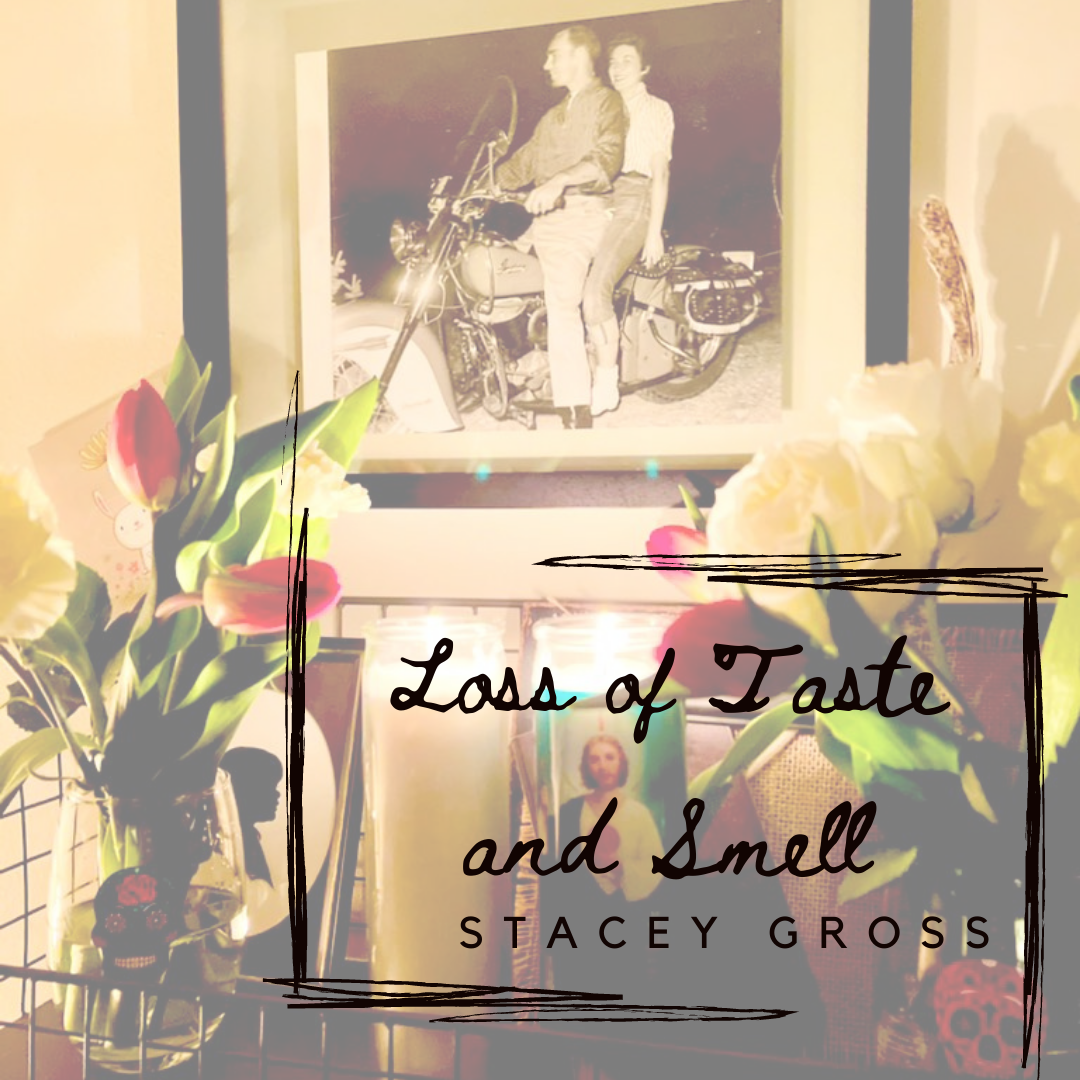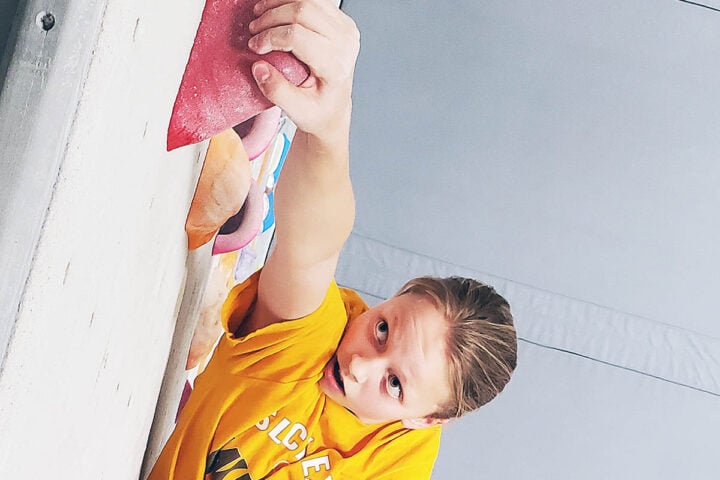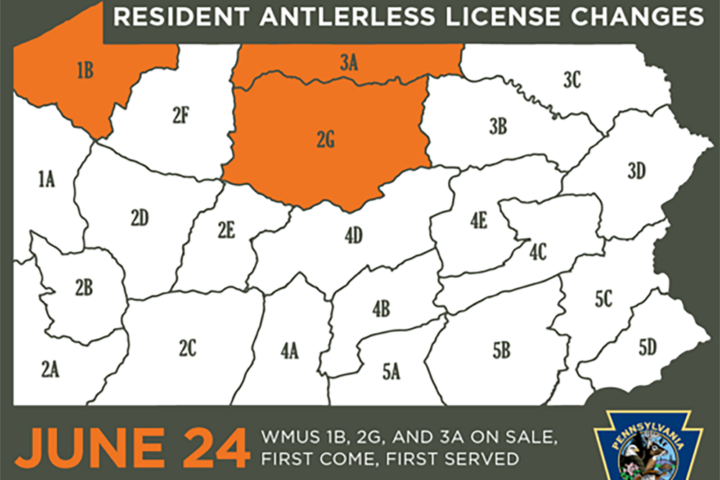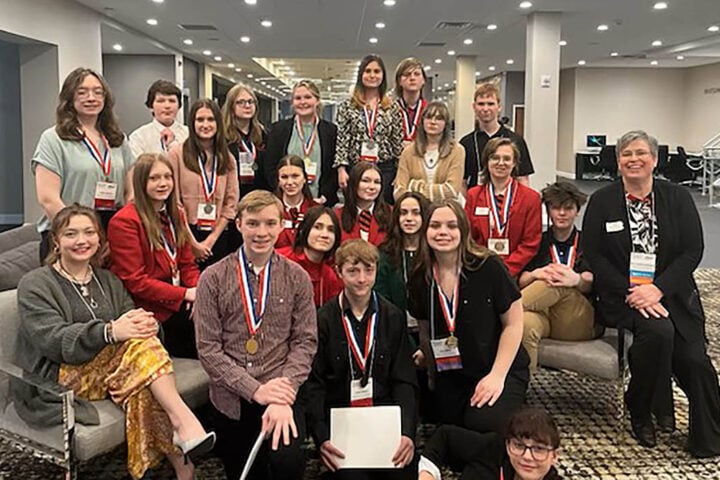Loss of Taste and Smell.
It’s a hallmark symptom of Covid infection, and most of the people I talk to who’ve had Covid cite it as one of the top three symptoms that alerted them to their state of infection in the first place.
We’ve recently had a death in the family.
I know, but just hold on. All will be revealed in time, dear reader, including the link between these two seemingly disparate facts.
My Aunt Marlene, my maternal grandfather’s sister, passed away a couple of weeks ago in the only home I’ve ever known to be hers, though she had a long and complex backstory before I knew her which began right here in little old Warren, Pa.
There was a lot of stress between my grandmother, my mother’s mother, and my Aunt Marlene. And between my grandma and my great grandmother Marie, Marlene’s mother, and my grandfather’s. I never knew Marlene growing up because she and her daughter, Kim, stayed more or less to themselves by the time I had achieved memorable awareness of other people outside my own subjective world. They may have even moved to Florida by that point, I really couldn’t tell you.
Over the years, though, old family wounds were mended. Many of them between Marlene and Marie and my grandmother were mended over my grandma’s deathbed. Literally, the wheel-in Hospice bed that replaced the cherry four-poster in her spare bedroom a few months before she finally gave her curtain call. I knew stories of Marlene, but they were filtered versions, passed down over post-Thanksgiving table gossip, as hot and free-flowing as the Folgers and apple pie slices making their concurrent and steady rounds. Marlene as a woman, and as a mother, confused me when I thought of her as an antagonist to my grandmother. The pair of them were formidable maternal figures with deep wounds from childhood traumas etched into their beings and informing their relationships with the entire world around them. I wonder, sometimes, if my grandmother and my Aunt Marlene would have been friends had they been able to overcome their own biases and trauma-informed behaviors. They were, in many ways, so very much alike.
In any case, around 2007 or 2008, I took a trip with my mother to Englewood, Florida, to visit my Aunt Marlene and believe me, I was intimidated just stepping on the plane in Pittsburgh.
Marlene didn’t have much sense of humor about things. Marlene liked things just so. Marlene would act annoyed that we were there, and whether or not she was just pretending or actually annoyed would be a mystery unto us that she’d haul with her to her grave, because Marlene kept all her emotions and human warmth strictly under lock and key and didn’t show them to anyone, ever.
The Legends of Marlene, it turned out, were a lot more terrifying than the reality.
While all of the things that had been said of Marlene proved themselves true, as is often the case when I encounter family archetypes I’ve heard tales of for years but not yet met myself, I found the traits themselves less malevolent and intimidating than my mother apparently found them. I was warned, as we drove from Tampa to Englewood in a rented Chrysler compact something-or-other, to be on my best behavior. Not to ask for anything to eat or drink – we would manufacture excuses to leave and procure sustenance, should hunger or thirst beset us. As kids, my mom recalled, even helping oneself to a can of Coca-Cola from Grandma Marie’s fridge would have been a sin punishable by shrill shouting and uninhibited public comments about oneself meant to wound and sting.
When we arrived at her door, Marlene immediately cut a less-than-imposing figure. She was shorter than me by at least a few inches and moved slowly due to the fact that she was, if I recall correctly, either well into or just on the cusp of her seventh generation of life by that point. And, as I followed her into what would be my bedroom for our visit, my stomach growling its aching, empty discontent at me along the way, I clamped down hard on the urge to ask whether she had even a Club cracker, perhaps, or a salted almond that I might ration out when my blood sugar tanked over the course of the next few days.
An emergency morsel.
Please, sir, may I have some more?
By the time I’d put my suitcase away and taken a moment to steel myself for the highly anticipated but wholly uncertain interactions that would follow, Marlene had withdrawn a rotisserie chicken out of her oven and dug some paper plates out of her cupboard and, with an impressive carving knife that seemed to reflect her personality just as well as it did the faux Tiffany lamp above her dining room table, stood there slicing thick hunks of tender breast meat and dishing them out onto her seashell Corelle ware plates.
As we sat around the slowly diminishing carcass of our cajun-seasoned dinner, getting through the initial, garbage, getting-to-know-you chit chat, I found myself easing more and more into the powder pink plushness of Marlene’s ornately upholstered rolling 1987 dining chair and wondering where on earth these terrifying portraits and woodplate prints of Marlene the Humorless House Frau had come from.
It was true, Marlene didn’t smile a whole lot and she certainly didn’t go out of her way to arrive at the door like a mirror image of Ed McMahon on Publisher’s Clearinghouse Day. These are things my mother would have done, frantically, taking great care to express every last drop of elated emotion within her as she welcomed highly anticipated stayover guests into the house that would absolutely have been Scotch Guarded tip to tail weeks in advance.
I always kind of wished that my anxiety would manifest in the sort of nervous energy it took the form of for my mother. It was impossible to leave things lying around at her house. Even a fresh cup of coffee with only a sip or two taken would be scooped up, dumped, washed, and placed upside down to dry on the kitchen counter if left unattended for more than approximately 72 seconds, with or without company looming.
For me, anxiety has always descended as an utter, utter inability to do anything but lay prone on the bed and watch six hours of serial killer or cult documentaries straight through with glassy, glazed-over pupils and such reduced respiration the possibility that I’ve gone into some kind of suspended state of animation is significant.
Either way, as nearly always happens, the more comfortable I became in physical proximity to the woman, the more control of my autonomic functions my brain relinquished, distancing itself from the task of regulating silly things like my breathing and pulse by slow degrees, and I was able to turn the majority of my preconscious cognitive energy to zooming in on Marlene as a person.
Mannerisms, tones of voice, what things people look at when they’re having a conversation with others. The words they choose, and how long it takes for them to be chosen. Whether questions carry on in one consistently-delivered waveform or lilt up at the end, indicating curiosity and a desire to appear friendly and interested.
And the more I absorbed of Marlene’s entire vibe, the more my heart swelled with some unbidden recognition of her on a spiritual level.
Marlene lived alone in her very pretty and probably very expensive house in Florida, about a half hour from the town where her daughter Kim had settled. She paid her own bills but didn’t need to work to do it. She had nice things, though her tastes betrayed her age in all their pastel and watercolor glory. Either way, as I listened to her agree, with as much emotional energy as I’d seen displayed yet, with my assertion that Elizabeth Hasselbeck was the most intolerable buffoon on television – or the planet – today I felt a genuine sort of unbidden and unmotivated sense of compassion and benevolent goodwill pool within what wasted little pebble of a heart I had left.
Marlene had never needed a man, and when the one she had died she’d grieved him as anyone would, but never set about to seeking a replacement. Marlene was good at solitude.
Even then, before I went ahead and tried marriage on for size and found it, ultimately, to be a bad fit in any light for me, I knew that I was going to need to be good at solitude as well. The women in my family like their partnerships, so up to this point I’d had no real model for what truly independent womanhood might look light as I aged.
Sitting before my great aunt for the first time, in all her self-assured power, I liked what I saw. I liked it a lot.
What I loved most about Marlene was, I think, what informed my mother’s understanding of her as a hard, or a cold woman.
I saw none of that. I mean, I saw it in that these are characteristics Marlene had grown good at projecting, but their manufacture was as transparent to me as the ways in which she wielded them, like a shield, feeling me out with them just as I was her, our mutual comfort with one another developing in tandem, each based on the deepening and furrowing of the other.
We spent a week with Marlene, and by the time we left I adored that woman as much as any woman I’d ever known in my life.
Here was a member of my family – someone with whom I shared at least some immutable, genetic connection – who actually looked, and sounded, and felt like me.
This was, for real, the first time I had ever gazed upon a member of my own family as a recognizable template for everything I knew and believed about myself, as a woman.
From that visit – the only one I’d ever have, it turns out – I have loved Marlene with the same unconscious constancy as I breathe, and blink, and swallow.
So a couple of weeks ago, when Marlene passed away somewhat unexpectedly but actually, not really all that unexpectedly at all for anyone – just as we all thought it might happen but a lot sooner than anyone predicted – I absorbed the news with a sort of prepared but not-yet-warmed-up openness. Just days before, I’d rearranged my desk, and replaced some photos in a few of my frames, and slid one of Marlene, probably in the early fifties, looking every bit as bulletproof as I know now she absolutely was not, and never was, on the back of some dude’s motorcycle. I could feel her leaving hanging in the air that night like a sweet, just slightly unpleasant fragrance, like overripe peaches, as I hung her above my writing desk.
Later that week, when she’d finally sloughed off the aid of ventilators, slipped loose of the electric beeps, suspended in the air of her hushed and solitary hospital room like the constant notes of a vigil choir, betraying the continuance of her life against her own wishes, I filled the shelf below her photo with fresh flowers, and candles, and little symbols of the honor I wished to demonstrate should her spirit be aware of my efforts.
I’m agnostic, so I know that in all likelihood these things are just for me, but in the end what is any supernatural or religious belief but a highly customized and self-administered opiate we choose to take on the regular? Still. Despite my deep reverence for things like logic and reason, and a dedication to the continued examination of one’s own life in order to keep it worth living, I do enjoy the freedom of agnosticism that allows me to apply a little salve here and there, as needed, in the form of a ritual candle lit or the casting of an intention out into the ether, when context calls for such things.
And then, once her seven-day candle had burned itself up, with the flowers hung now from the side of the shelf, to be dried, their petals collected, and stored for some future intention yet-to-be-cast that would be not worth casting without first enclosing it in the gnarly, tough-skinned vibe in which Marlene had lived her quietly remarkable life, I noticed a symptom set in that I’d been hearing a lot about lately.
I lost my sense of taste and smell. Not the physical ability to perceive such stimuli. But the cognitive, connective experience of them within my brain. Ever step out of your car on upper Peach Street in Erie, Pa., on a Saturday evening around six?
Smells like you’re actually inside of a Delmonico, doesn’t it?
We forget, I think, what important motivators taste and smell are in our lives.
Going out for dinner wouldn’t be quite so exciting if we couldn’t smell the steak (or the tofu, or the eggplant, or whatever it is we’re imagining in our minds and drooling over in anticipation of in our mouths). Sitting down to meals would be a task, rather than a pleasure to be partaken in, without the ability to taste it, or to smell it.
We’d still do it. We’d still feel that gnawing ache of hunger eventually. We’d still eat. But it wouldn’t be much fun at all. No longer something to look forward to but, rather, just another obligation to check off the list each day.
That’s what grief feels like. Because for the past two weeks I’ve noticed that I’m doing all the things I used to do. I’m still going to work. I’m still having conversations with donors and driving the blood van around. Still feeding chickens, and children. Still watching my shows in the evening, and showering at dawn. But there’s no passion behind it. Just knowing that an Americano lies in my future doesn’t get me down the hill to collect it. It’s just this sort of underlying, grinding, reptilian corner of my brain, churning my muscles into movements while my brain, I think, recoils, reels, and regains itself from the enormity of the loss I’ve just experienced.
Every day, when I felt out of place even among the people who make up my own family of origin (and know that there are so, so many of those days, for me, with no end in sight), I could refer myself back to the knowledge that Marlene was also one of us, but quite content to live a life separate and independent of the rest. She was different from them herself, and she knew it, and she’d found a way to be fine with that fact.
So, as long as I knew that she was still there – as long as that facade of existential object permanence remained – I could rest easy in the knowledge that I’d be just as okay at her age as Marlene currently was.
Alive and well.
Down in Florida.
Doing her little old Golden Girl thing.
It was beautiful. Soothing, to picture her shaking her head in disgust at the antics of our government. Chuffing at the idiocy of “those damn kids going to the beach” in the midst of a pandemic. A general, disgruntled and fragile sort of tolerance of the world as it developed around her. She was, for me, the legitimizing of all my grump, and gruffness and, grouching.
Even when we’re handling it really really well – even when the symptoms are mild, hardly worse in a subjective sense than a typical bout with a common rotavirus or strain of seasonal flu – grief is a condition that inhabits each of us at one point or another. It is omnipresent, around us at all times, awaiting its opportunity to descend into our lives for a time. And, like a virus, there’s not much one can to do lessen its impact than to distance yourself from others while your psyche heals, and let it run its stupid, unholy course.
And fluids.
Fluids are good for anything, I’m pretty sure.
Anyhow, the loss of taste and smell – the metaphorical ones I’m talking about that come next in line after sadness in the typical grief processional – they’re not something a person can do much about either. About all we can do is know that they’re there, and remind ourselves to eat – to partake in life in some consistent sort of way – until they return.
I’m late this week.
I haven’t written so much as a grocery list in almost ten days, and I’m late with this column, and I’m late with blog posts, and I’m late with podcast episodes, and I’m late even showing up mentally, most days at work, because the most enticing senses I have – the ability to smell a story in a mundane interaction, to taste some morsel of universal wisdom in a random, Tuesday afternoon lunch break epiphany – have gone dormant while my heart and my mind darn their socks and prepare their bootstraps for the self-elevation I can feel coming down even now, as I finally grunt and sweat the last of this column onto the page and prepare to harness whatever momentum I’ve got at the end of it to get back on track with blog posts next and, then, to start editing podcast episodes, while my self-imposed emotional quarantine draws down to its final hours and I’m able to look at Marlene’s beautiful, perpetually youthful face above my keyboard and imagine her smiling just like she is there, on the back of that motorcycle, with a cute fella up front and a whole night of revelry laid out before them, watching me convalesce and hopefully soon, get back to my regularly scheduled life.



























